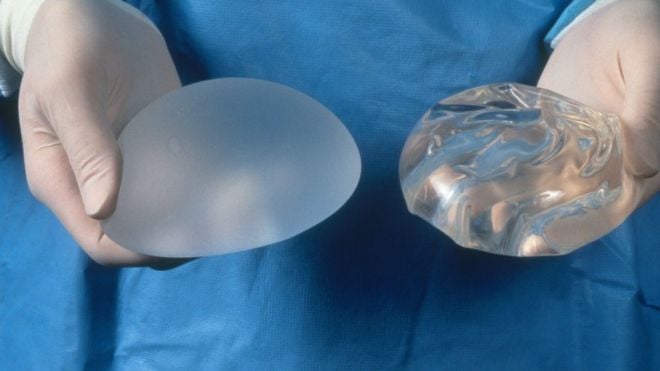According to some observers, “toxic breast implants” is a redundant phrase because they believe all breast implants are toxic. They say it’s not a question of if, but of when a woman’s implants will cause a number of negative health effects collectively known as “breast implant illness” or “breast implant syndrome.”
The FDA has not specifically responded to the various reports of breast implant illness, and the agency maintains the safety of breast implants in general. While federal regulators acknowledge the risks associated with leaks and ruptures, as well as the possibility of the formation of a type of cancer that attacks the immune system called breast implant associated-anaplastic large cell lymphoma (BIA-ALCL), they have yet to acknowledge the larger syndrome in question.
The subject received some wide attention in 2016 when former Playboy model and wife of Hugh Hefner, Crystal Hefner, had her breast implants removed due to symptoms she identified as breast implant illness. Doctors initially diagnosed her with Lyme disease and complications due to toxic mold exposure, but then she learned via social media that it could be the implants.
While the specific set of symptoms vary by case, here’s a list of the more pronounced problems reported:
- Fatigue or chronic fatigue
- Cognitive dysfunction (brain fog, difficulty concentrating, word retrieval, memory loss)
- Muscle and joint aches, pain, and weakness
- Hair loss
- Dry skin, eyes, mouth, hair
- Easy bruising and slow healing of wounds
- Temperature intolerance
- Low libido
- Heart palpitations
- Shortness of breath
- Skin Rashes
- Estrogen/progesterone imbalance or diminishing hormones
- Swollen and tender lymph nodes in the breast area, underarms, throat, neck, or groin
- Burning pain around the chest wall or breasts
- Cold and discolored hands and feet
- Liver and kidney dysfunction
- Gastrointestinal and digestive issues
- Food intolerances and allergies
- Hypo/hyperthyroid or adrenal symptoms
- Symptoms or diagnosis of fibromyalgia, Lyme disease or toxic mold exposure
After the removal procedure, which is also called “explant” surgery, Heffner reported her measured optimism in a Facebook post titled My Breast Implants Slowly Poisoned Me. “My implants took 8 years to make me this sick, so I know it will take time to feel better,” she wrote. “I also have other illnesses to address, but with the toxic bags removed, my immune system can focus on what it needs to.”
Not surprisingly, the American Society of Plastic Surgeons says implants are just fine. “Careful reviews of scientific research by independent groups such as the Institute of Medicine have found no link between breast implants and autoimmune or other systemic diseases.”
Without corroboration from the medical community, there are few legal options available for compensating sufferers or paying for explant surgery. “Medical malpractice lawsuits require establishing that a medical professional or institution has caused injury to a patient through negligence or omission,” says Medical Malpractice Help.
At this point, most information can only be found in first-hand reports on social media, but it’s only a matter of time before the medical establishment issues official reports.

